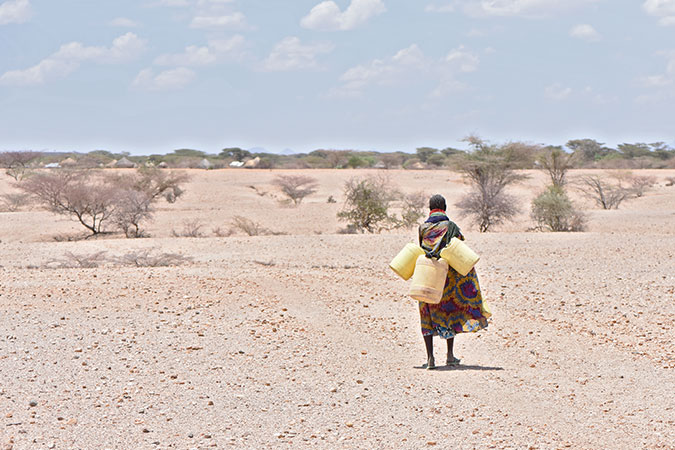
WASHINGTON, Aug 3 (NNN-AGENCIES) — Below average rainfall this year coupled with the war in Ukraine is likely to drive up to five million Kenyans into acute food shortage, according to the World Bank.
The Food Security Update for July published by the bank indicate that low rainfall experienced in the March-to-May season which marked the fourth consecutive poor season since late 2020 could see the number of food-insecure people in East Africa reach 22 million by end of the year as the region experiences the worst drought in 70 years.
The report says the combined effect of drought and price shocks have further worsened malnutrition situation in the region.“Forecasts for the upcoming October-to-December rainy season are for below-average rainfall, suggesting that market demand may continue to rise despite reduced supply from crop harvests,” says the report.
The low rainfall has affected crop harvest in Kenya, a move that has seen food inflation rise significantly in July. Inflation rate has already risen in five consecutive months to reach 8.3pc in July on account of high food prices and fuel.
As a result of the food shortage, the World Bank says nutritional status of children under 5 has deteriorated in the region due to inadequate consumption, limited availability of milk products and increased disease burden.
“In the first quarter of 2022, the number of new acutely malnourished children admitted for treatment was 27pc to 68pc higher than in 2021 across Ethiopia, Kenya, and Somalia.
The drought has displaced an estimated 7.5 million people in 2022, exacerbating risks of child labor, gender-based violence, and disease outbreaks, in addition to widespread food insecurity and hunger,” the multilateral lender warned.
In response to the crisis, the government has embarked on rolling out billions in subsidy programmes covering maize, fuel and fertilizer in a bid to cushion vulnerable households.
World Bank has similarly lined up $30 billion for existing projects and new projects to help countries respond to the global food security crisis. The action plan launched in May will cover agriculture, nutrition, social protection, water and irrigation. — NNN-AGENCIES






